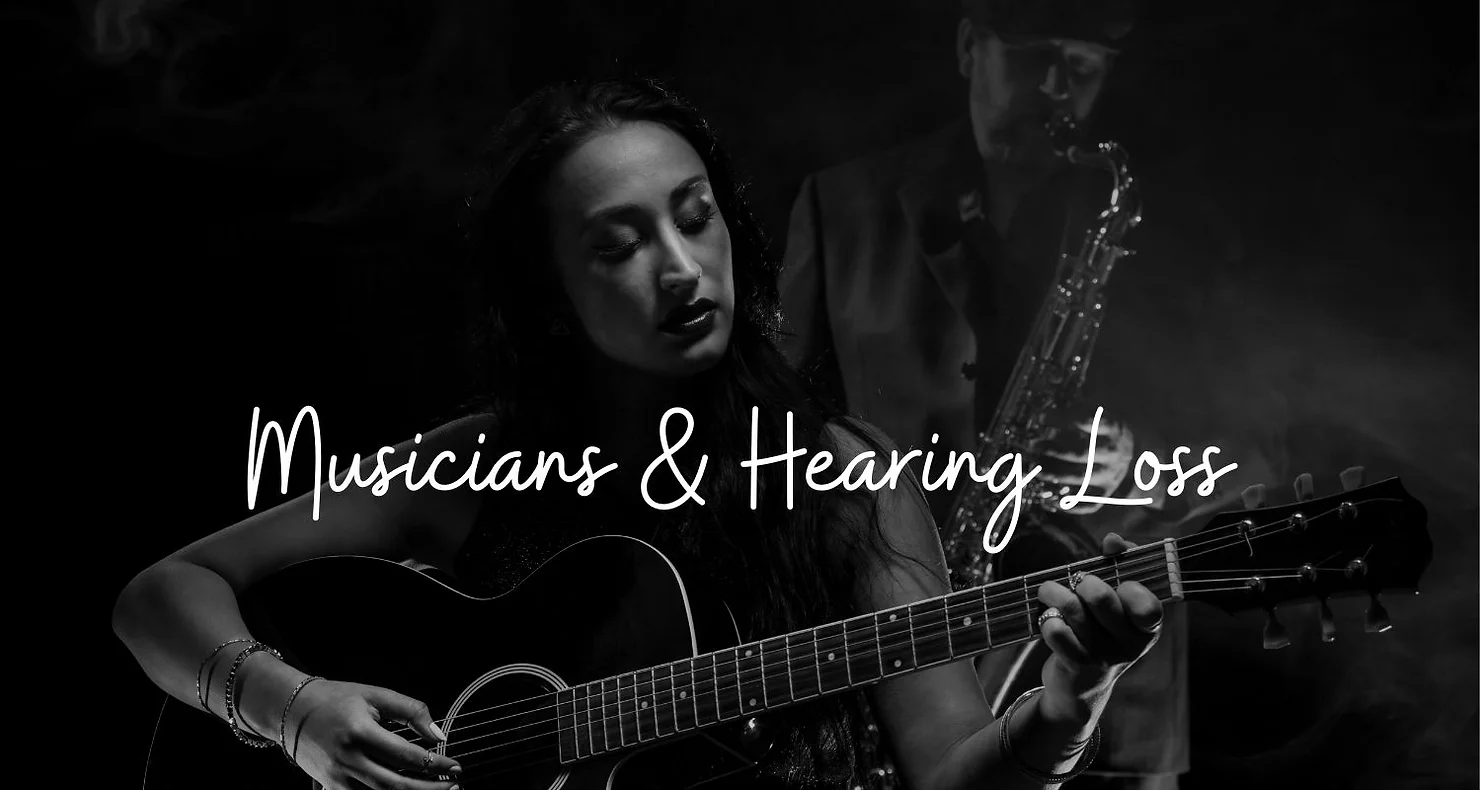
Did you know that musicians are 4 times more likely to experience hearing loss? Hearing loss is a chronic medical condition that affects over 48 million people. It is estimated that nearly 60% of classical musicians have some degree of impaired hearing. Many of your favorite musicians have hearing loss: Sting, Barbara Streisand, Will I Am, Eric Clapton, and more. Learning about noise-induced hearing loss and the increased risk musicians face as well as ways you can mitigate this risk are effective ways you can protect your hearing health.
Noise-Induced Hearing Loss
Loud noise is one of the most common causes of hearing loss. One-time or consistent exposure to loud noise can irreparably damage the auditory system – the sensory system for hearing. Loud noise can cause the hair cells in the inner ear to lose sensitivity, making them increasingly vulnerable to dying. These sensory cells send critical sound information to the brain. They convert incoming sound waves into electrical signals that the brain is then able to process and assign meaning to which is how we can hear. So damage from loud noise prevents these cells from performing their essential function which makes it more challenging for the brain to process and understand sound.
Unlike other types of cells we have, hair cells in the inner ear do not regenerate. Humans are born with all the sensory cells in the cochlear that we will ever have. There are also no medical interventions that can replenish or heal damage to these cells. This means that damage is permanent, resulting in hearing loss.
How Loud is Too Loud?
So how loud does sound have to be to impact hearing? Well, the sound is measured in units referred to as decibels, and noise above 85dB is hazardous for hearing health. This is the equivalent of busy city traffic or a kitchen blender. According to experts, people can be exposed to sound at 85dB for 8 hours a day without damaging their hearing which means this is the threshold for safe listening.
If sound exceeds 85dB, the exposure time should be drastically shortened. According to guidelines outlined by the Occupational Health and Safety Administration (OHSA), exposure time to noise above 85dB should be reduced by half for every 3-decibel increase of sound. Their guidelines for safe listening include:
-
85dB: 8 hours
-
88dB: 4 hours
-
91dB: 2 hours
-
94dB: 30min
Musicians are regularly exposed to high levels of sound for longer periods. This can easily and quickly damage hearing which is why it is so important to practice as many safety measures as possible.
Tips to Prevent Noise-Induced Hearing Loss
Noise-induced hearing loss is preventable. Implementing safety measures can significantly reduce your risk of impairing your hearing. A few useful tips include the following:
-
Wear hearing protection: there are various forms of hearing protection that offer a physical barrier for the ears, reducing the amount and impact of loud noise that you absorb. Headphones and earplugs are common forms of hearing protection that are easily accessible and portable. Some earplugs are specifically designed for musicians. These reduce volume rather than reducing all noise.
-
Use in-ear monitors: another useful resource for musicians is in-ear monitors. In-ear monitors utilize noise cancellation technology to reduce background noise and deliver enhanced sound quality directly to the ears.
-
Reduce noise exposure: in addition to wearing hearing protection and using in-ear monitors, practice ways to reduce your exposure to loud noise. This includes lowering volume settings on your electronic devices, avoiding places during peak hours, taking listening breaks, and opting for quieter settings.
-
Have hearing tested regularly: conducted by a hearing healthcare provider, hearing tests measure hearing capacity in both ears. This identifies any hearing loss and informs treatment that could best meet your hearing needs. Getting your hearing tested regularly is especially important for musicians who are regularly exposed to loud noise. It allows your hearing health to be tracked, making it easier to identify any changes early.
These safety measures can prevent you from experiencing hearing loss. To learn more about how you can protect your hearing health and the resources available to support you, contact us today.
